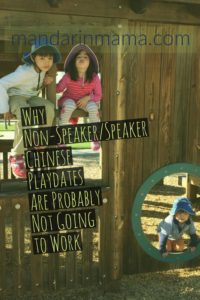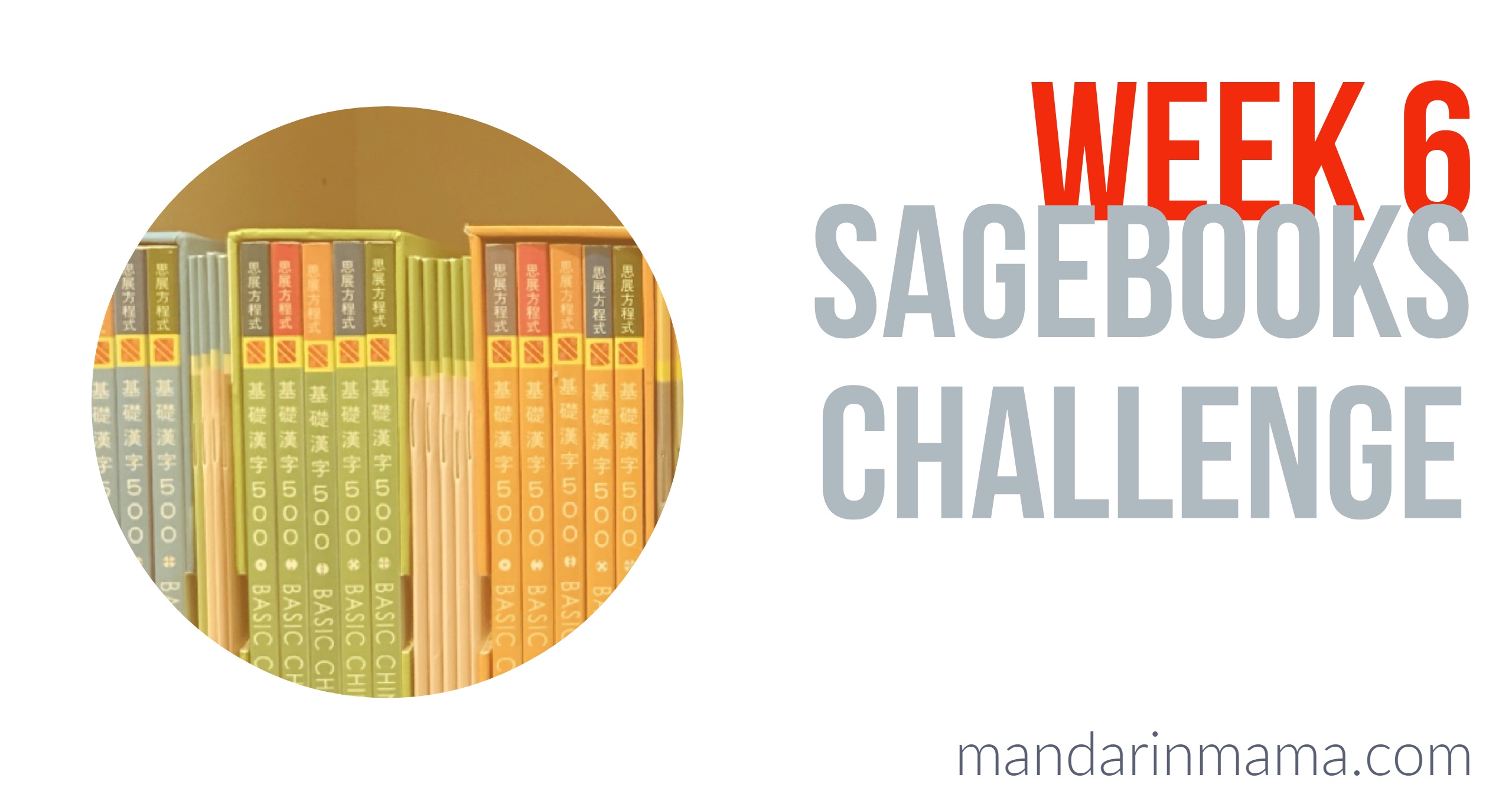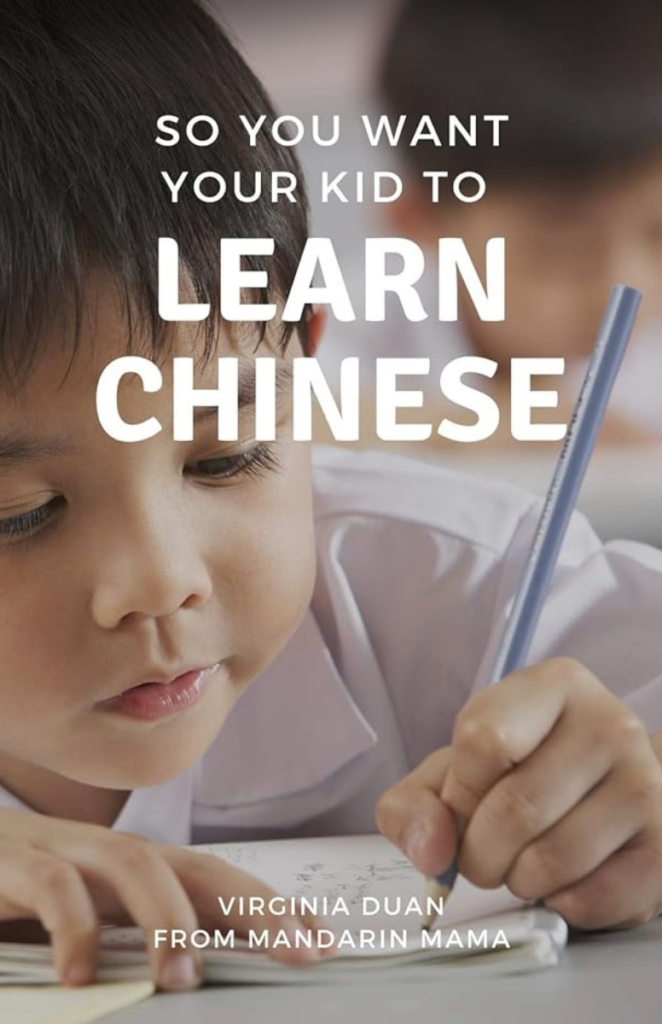
**You can find an updated version of this piece, along with exclusive new chapters, in the ebook, (affiliate link) So You Want Your Kid to Learn Chinese.
I read a lot of articles on language and helping kids become bilingual. And over and over again, I see the same advice telling non-Chinese speaking parents to set up playdates with Chinese speaking parents and their kids.
I get why.
It seems to make sense. Want your kids exposed to Chinese? Let’s play with kids who speak Chinese! Win!
Except, no. Not really.
Here are six reasons why as nice as it sounds on paper, non-speaker/speaker Chinese playdates probably are NOT going to happen. (Oh, and it perhaps helps if you pretend I’m not an angry ranting person on the interwebs and more so like a constantly grumpy older sister giving advice.)
1) No Chinese speaking parent who wants their kids to speak Chinese fluently is going to want their kids to play with your non-speaking Chinese kids. At least, not for the purpose of a Chinese playdate.
What’s the point, really? Your kids won’t speak Chinese – not through lack of desire, perhaps, but definitely due to lack of ability and range.
So then, if my kids are just going to speak English to your kids, and I want to maximize my kids’ playdates with people who actually speak Chinese, let’s be real. I am not going to accept a playdate with you.
Truthfully, this has also likely happened to me from recent immigrants or fellow Chinese emphasis parents who don’t want their kids to play with my kids because my kids’ Chinese aren’t good enough for their standards. I don’t know. But I’m sure it has happened.
Is that mean? Maybe. But you know what? This brings me to the next reason.
2) If the only reason you want a playdate with my kids is so your kids can practice their Chinese at the expense of mine, you’re rude. And quite possibly racist.
Using people for their language and what they can do for you is awful. And assumes the fact that your mere presence is doing me a favor or is good enough recompense for my kids teaching your kids Chinese.
I mean, it might. But probably not.
3) As I mentioned before, the kids will most likely play in English anyway. Why? Because your kids can’t speak Chinese. Oh. And because even when Chinese speaking kids play together, they usually speak English.
Now, that’s not always the case, but often, when Chinese speaking kids play together in Chinese, it is only because every kid’s Chinese is at a similar level. This will not be the case if even one Chinese speaking child feels as if their Chinese isn’t up to snuff and doesn’t want to use it. As soon as a kid starts speaking English, they’ll all switch (either out of ease of communication or politeness).
Getting Chinese speaking kids to play together in Chinese often takes constant nagging and reminding from either a really obedient kid or annoyed parents.
4) If I, as an ABC/T who actually speaks and understands Chinese, already have a hard enough time getting recent immigrants to relate to me and my children and invite us over to become good friends and playmates, good luck with you on your endeavor. (Or it says a lot about me, which is totally possible. But that doesn’t mean they will also like you.) At least, for the purposes of a Chinese playdate, anyway.
5) Most recent immigrants want their kids to maximize their English. In general, I have found that though they want their kids to speak Chinese, they are really afraid their kids’ English will behind due to them not speaking English at native level. And because of how America treats people who don’t speak native-level English (or at least, non-European accented English), it is a totally legitimate concern.
So, on the chance that recent immigrants would like to have a playdate with you, it’s more than likely because they want to use your children for their English abilities. And if they do happen to want their kids’ Chinese to improve, they certainly would not want a Chinese playdate with your children (confer Reason 1).
6) And finally, just because people look Chinese, doesn’t mean they speak Chinese.
To assume so is racist and rude and all sorts of things.
Why do I include this?
Because if you’re a non-speaker, likely most Chinese speaking people will not reveal themselves to you. There is still a stigma in the US for speaking any language other than English. (I mean, FFS, people are killed for not speaking in English here. I cannot tell you how often recently I feel somewhat worried when I speak to my children in Chinese in public. That makes me incredibly angry.)
Thus, I’m not sure how you would go about finding families with children who speak Chinese to have playdates with your children unless you go about purposely finding people to do so.
And often, people go about this in an incredibly bumbling, horrible, and unintentionally (but still incredibly) racist way by assuming people who look Chinese speak Chinese and then asking a whole slew of likely friendly intending (but really, again, horribly racist) questions and thereby ruining these innocent people’s day and perhaps inspiring rants on blogs and twitter.
Look. I know I talk about race a lot. But quite frankly, race matters. And it matters in learning Chinese because the Chinese language does not exist in a vacuum. It is connected to a people, many of whom speak it and live in the US and are US citizens.
Anyhow, as a bonus, I will also give you GuavaRama’s excellent take on the situation. Perhaps her reasoning will be more appealing.
It’s been my experience that from a language perspective it works as follows:
1) When you can’t speak [Chinese] you need a native speaker who can only speak the language and will not switch. Usually this means adult.
2) When you can understand but can’t speak it due to rustiness you need a native speaker who will not switch. That also usually means an adult unless you have a well trained child.
3) When you have bilingual kids, then you have to find kids who are at same level of speaking and who are trained not to switch.
All of this means finding a Chinese speaking child who will only speak Chinese to your low Chinese level speaking child. That requires their Chinese to be so strong. But then why would someone play with someone else who can’t speak the language?
Alright. I’m amazed I wrote anything and we can thank the internets for annoying me so much that I had to write something. YAY! Have a great day.







